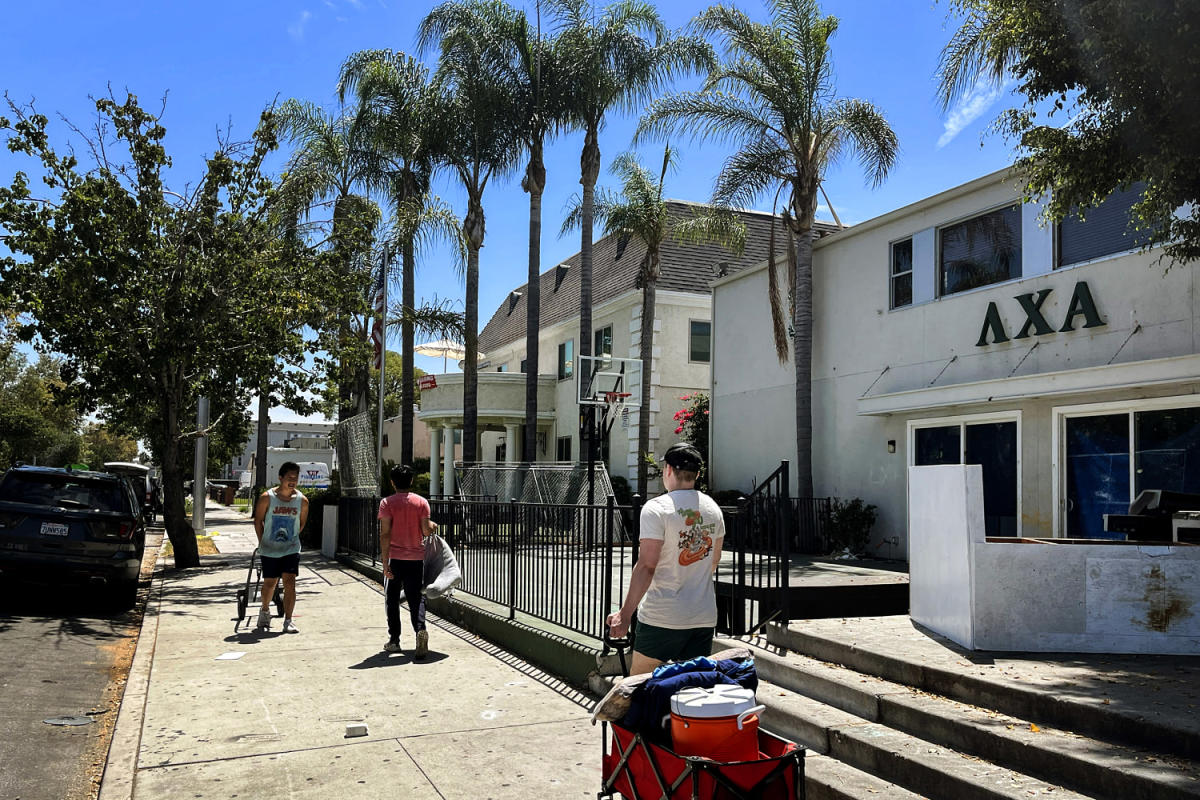Jan. 6—In the years after World War II, immigrants from all walks of life came to this country. That included Puerto Ricans, people from an island in the Gulf of Mexico that is a part of the United States, but not a state.
According to the Library of Congress, between 1945 and 1946, the population of Puerto Ricans in New York City doubled from 13,000 to 50,000. By 1955, nearly 700,000 had made the trip from Puerto Rico to the mainland and were living in the continental U.S.
The reasons why this happened had to do with economics, as well as the active recruitment efforts by factory owners in Puerto Rico who encouraged the people to move and work across the U.S. Some of the descendants of those “internal immigrants” still remember stories of their parents and grandparents deciding to make that trip. Thus Puerto Rican communities emerged in the states.
Jonathan Aviles came to Western New York like many who come to the U.S. — with nothing. Hurricane Maria had stripped him of his home, his business and the community he had in Puerto Rico. Because members of his wife’s family lived in Lockport, he had a place to go, but it was an uphill battle finding work with only a partial grasp of the English language.
Aviles knew what he wanted to do and didn’t wait. He opened his barbershop two years ago on Locust Street and started employing other barbers.
“I had a barber shop in Puerto Rico when Hurricane Maria came. I came here to make a new life,” he said. “I don’t like the weather (though)! It’s too cold! But I like it. It’s life.”
For Jason Massa, the opportunity to work with Aviles was an opportunity of a lifetime. Massa, who is also Puerto Rican, grew up in Cleveland, and in his community there, being a barber was like being a rock star.
The reason Massa left Cleveland was because violence was on the rise in the city and his wife’s father decided everyone should leave. Massa said he remembered being at a funeral for someone who’d died because of violence and the reverend saying that “someone in this room is next.”
As it turns out, leaving Cleveland and coming to a smaller city like Lockport was good for Massa.
“You make who you are, wherever you are,” he said. “I feel welcomed here. I feel accepted. Dealing with diverse ethnicities, people from around the world who step into the shop … the conversations that we have.”
Massa said he is raising his children here, and while he is leaning toward moving to Puerto Rico someday in the future, he believes there is something about Lockport that isn’t found in bigger cities.
“I feel like people here are family-oriented. They love their neighbor,” Massa said. “People are tight-knit, they get together. There’s parades all the time and a lot of that is family driven.”
Felix Elicier Perez came to Lockport from Puerto Rico 26 years ago. A pastor for eight years, and still not proficient in English, he presides over a community of faithful Spanish-speaking residents who attend the Church of Jesus Christ of Mount Moriah every Sunday. The worship services are conducted in Spanish and people may approach to be prayed for while music is played on keyboards, drums and guitar.
“I came to experience a change in my life,” Perez told this reporter through a translator. “I found more peace.”
Perez said his church acts as a place for new Spanish-speaking residents to gather. He said the church provides food for those in need and that the entire congregation makes trips together to see sights like Niagara Falls. The members tend to visit one another’s homes as well.
“The church has been here for 38 years. It’s easier for people to adapt when they come here,” Perez said. “In the summer we do a lot of activities outside. Picnics. Games. We evangelize outside of Lockport. … Lockport is a very good place to live, a secure place where the Hispanic community is very united. Unity is very important to us and we believe in God very firmly. We invite the community to come in.”
Meanwhile, Gabriel Vidal James and his wife Yossany Perez also welcome the wider community to visit their Aprieta Monster Food Truck and “try the mofongo!” That Puerto Rican dish is fried plantains mashed with butter and garlic.
Perez said Lockport is nothing like their old hometown, Luquillo, a tourist destination with a beach.
“We came in 2017 between the two hurricanes, Maria and Irma,” Perez said. “It’s quiet here. It’s never quiet in Puerto Rico.”
James noted that income in Puerto Rico is low, but prices are high.
“I’ve got friends with two, three jobs at the same time,” he said. “If I go over there it’s like another country. I’m only there for vacation.”
After working at Walmart for several years, the couple decided to “put all their eggs in one basket” and launch their food truck. James said many people in his family-owned businesses, including a dairy farm, but that was “years ago.”
“We’re trying to live our dream,” he said. “If you think about it, your dreams might come true.”
Other business owners include Joshua Lopez, a local arcade owner, who had a troubled past as a teenager living in Lockport. He said growing up he only had drug dealers and criminals as role models and he followed that life for years. After time in state prison, though, he wants to be that role model that is doing it right.
Because of this, Lopez said he’ll always support other small business owners and the community. Besides giving entrepreneurs space to throw “pop-ups” at his arcade, he also said he’ll continue to throw “Free Hotdog Day” every summer, because, “you got to give back to the same community that you want to be recognized by.”
Lopez also said that in the business world, he’s never faced racial discrimination.
“As far as the doors that were opened or even closed on me that I had to knock on, to be a businessman, 100% legit? They opened because of what I did for the community, what I was proving to those who doubted me,” he said. “… There are people here and there that won’t help me, but I can’t say that’s based on color.”
Another entrepreneur, Joshua Pagan, is a barber in the Bewley Building and said his dream has come true. Like Massa, and Lopez, Pagan is Puerto Rican by descent — his father came from the island — and he has lived his life in Lockport.
Pagan said he started at age 14, cleaning up hair at barber shops. Later, much like Aviles, he had a team of barbers working under him, but since then he’s found his clientele who prefer to come to him in his quiet two-chair studio for their appointments.
These days Pagan has three children who he spends time with riding four-wheelers at ATV parks. He doesn’t go to church and his children do not speak Spanish and while he’s outgrown going to Spanish clubs, being Puerto Rican is still a part of who he is.
“I speak it, I eat Puerto Rican food,” he said. “I do all that, but I don’t always go to a Puerto Rican church or Puerto Rican restaurant. Some people will never go to an English-speaking church, but that’s what I’m saying. If I see something I want to support, I support it.”
To Pagan, the important part of his life has been working every day to give his family a way forward, like anybody else. He said that even though his family came from poverty, the opportunities were available for him to work and he cherishes that. In the end, Pagan calls Lockport his home.
“I’m born and raised here and for 18 years I’ve been around here cutting hair. I built my foundation here,” he said. “I would never leave Lockport.”
Signup bonus from




